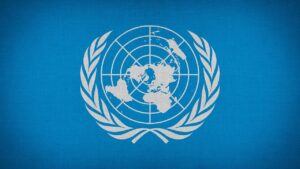
Piratenpartei Spanien
Der Sperling konnte für das Interview mit Lorena Müller-Nischt einfach nicht auf das Wortspiel in der Überschrift verzichten – irgendetwas in ihm zwang ihn einfach dazu 😮
Lorena zwitschert, entgegen dem Eindruck durch Ihren Namen, nicht in deutsch, darum ist auch dieses Interview in Englisch.
Introduction ( from Lorena )
 In Spain, there is an atypical situation since there is more than one Pirate Party. The Partido Pirata de España (Pirata Party of Spain) was funded on January, 22nd, 2007. It is a national party and has pirates across the country. Some years ago, there was some trouble between pirates caused by the PPES statutes. They were very confined and some pirates thought that PPES could only participate in the European elections.
In Spain, there is an atypical situation since there is more than one Pirate Party. The Partido Pirata de España (Pirata Party of Spain) was funded on January, 22nd, 2007. It is a national party and has pirates across the country. Some years ago, there was some trouble between pirates caused by the PPES statutes. They were very confined and some pirates thought that PPES could only participate in the European elections.
So many pirates decided to leave the PPES and create local Pirate parties in each autonomous community. So, Pirates de Catalunya (Catalonian Pirates), Piratas de Aragón, Piratas de Madrid, Piratas de la Comunidad Valenciana, Piratas de Extremadura, Piratas de Andalucía & Piratas de Galicia were funded. All of them created the Conderación Pirata (Pirate Confederation), completely outside of PPES.
The relation between the new organizations and PPES was not very good. But since 2015, pirates from PPES and Confederación Pirata are trying to fix those issues and be together again.
 Sperling: Hello Lorena, how are you? And what are you doing in “real life”?
Sperling: Hello Lorena, how are you? And what are you doing in “real life”?
Lorena: Hello, Sperling. I’m doing very well. Actually I’m on vacation, so that’s great! In my real life, I’m a photographer but I also work in an informatic security team for a big company.
Sperling: Please tell me, what is your job in the Spain Pirates and when/how did you get it?
Lorena: I’m just a militant. I work with Paco Georges (@paco229) taking care of PPES communications. Especially in the social networks. And I’m also part of the Confederación Pirata, where I’m the Chairwoman.
Sperling: How are the Spain Pirates organized?
Lorena: In PPES we are just one party and as we are restarting the activities there are no other type of organizations.
Sperling: How many pirates are on board? Can you tell me something about your members?
Lorena: We are not very much in PPES, all the pirates except me are male, middle age, professional. The most well known pirates are the two councilmen: Dario Castañé, from Igualada, Catalunya and Adrián Juste, from Burjassot, Valencia. They both work very hard in the party but also in the town hall.
In the Confederación Pirata we are more than 1000, but there are only a few more than 150 pirates that are very active. It’s a very diverse party, most of them male, but women are very active. We are working very hard to introduce feminism to the party, but there are some parts that are not very well informed about it, so we are trying to do educational activities. We have a feminist sectorial named Mary Read. There are close to 20 pirates working on it, but there are also many not-pirates friends.
Sperling: What kind of tools do you use for the internal organization of your political work?
Lorena: We use email lists, etherpads, mumble, Telegram. Some weeks ago were created the PPES channel in Telegram.
Same tools are used in the Confederación Pirata. We use Agora Voting for our decisions.
Sperling: Do you use or discuss about using a online-voting tool? What are the main arguments pro/contra online voting?
Lorena: Well, it’s not an easy answer. In PPES, there are many pirates that think the electronic and online voting are the future. But, other think that still there are many security holes on all the apps.
So, we use them, investigate and develop them but we are still trying to find a better way to use the Internet for elections.
Sperling: Which channels you use in social media or the internet for contact with non-pirates?
Lorena: Twitter, Facebook, Telegram (channels & chats), email
Sperling: The Spanish political system is not well known in Germany. Can you explain how it works? Is there a chance for small parties to get involved in the system?
Lorena: Spain is a parliamentary monarchy. Spain is divided in 17 autonomic communities, 50 provinces and 2 autonomic cities. So there are local, province, autonomic, national parliaments and European representations.
Until last year, the bipartisanship was very hard and close in Spain, but as both parties People’s Party and Socialist party (like PSD), both neoliberal in their economic policies and a little bit different for civic & social rights; This was broken with the two new parties arrival. One of them is Podemos (now joined with Izquierda Unida) and the other is Ciudadanos (a more than 10 yrs old party in Catalonia but new in Spain) that seams to be part of People’s Party.
There are also many autonomic parties with national representation.
 Sperling: Can you tell me which positions are the “central ideas” of the Spain Pirates? How do you communicate them to your voters?
Sperling: Can you tell me which positions are the “central ideas” of the Spain Pirates? How do you communicate them to your voters?
Lorena: First of all: Human, civic and digital rights. Human Rigths are the one law to us. Civil liberties and digital rights, too.
We have changed our point of view considering the economic and political crisis in Europe, especially here in Spain. We think that to be more in the streets is fundamental to know what people want and need.
We are direct and liquid democracy defenders, so we work to take that to the daily political work.
Sperling: What are your best political achievement/s?
Lorena: We were working very hard to take into power the citizenship coalitions. We were part of more than 30 coalitions and we have 3 councilmen in tree important cities in Catalonia and Valencia.
Sperling: Did the Media report about you? Did they report about the success of the German/Iceland/Czech/somewhereelse pirates?
Lorena: Yes and No. I think we are still not very well known to the media. This year, the Icelandic Pirate Party’s work for the Icelandic elections was well covered by the media.
Sperling: Thank you for your time, we hope we hear about you in the coming years!
Lorena: Thank you for the talk about us.
Redaktionsmitglied Sperling
Redakteur seit 2011, Kernteam der Redaktion seit 2013. De facto "Leitung" ab 2016, irgendwann auch offiziell Chefredakteur - bis 2023. Schreibt nur noch wenn ihm die Laune danach steht, zahlt aktuell die Infrastruktur der Flaschenpost, muss aber zum Glück nicht haften 🙂








